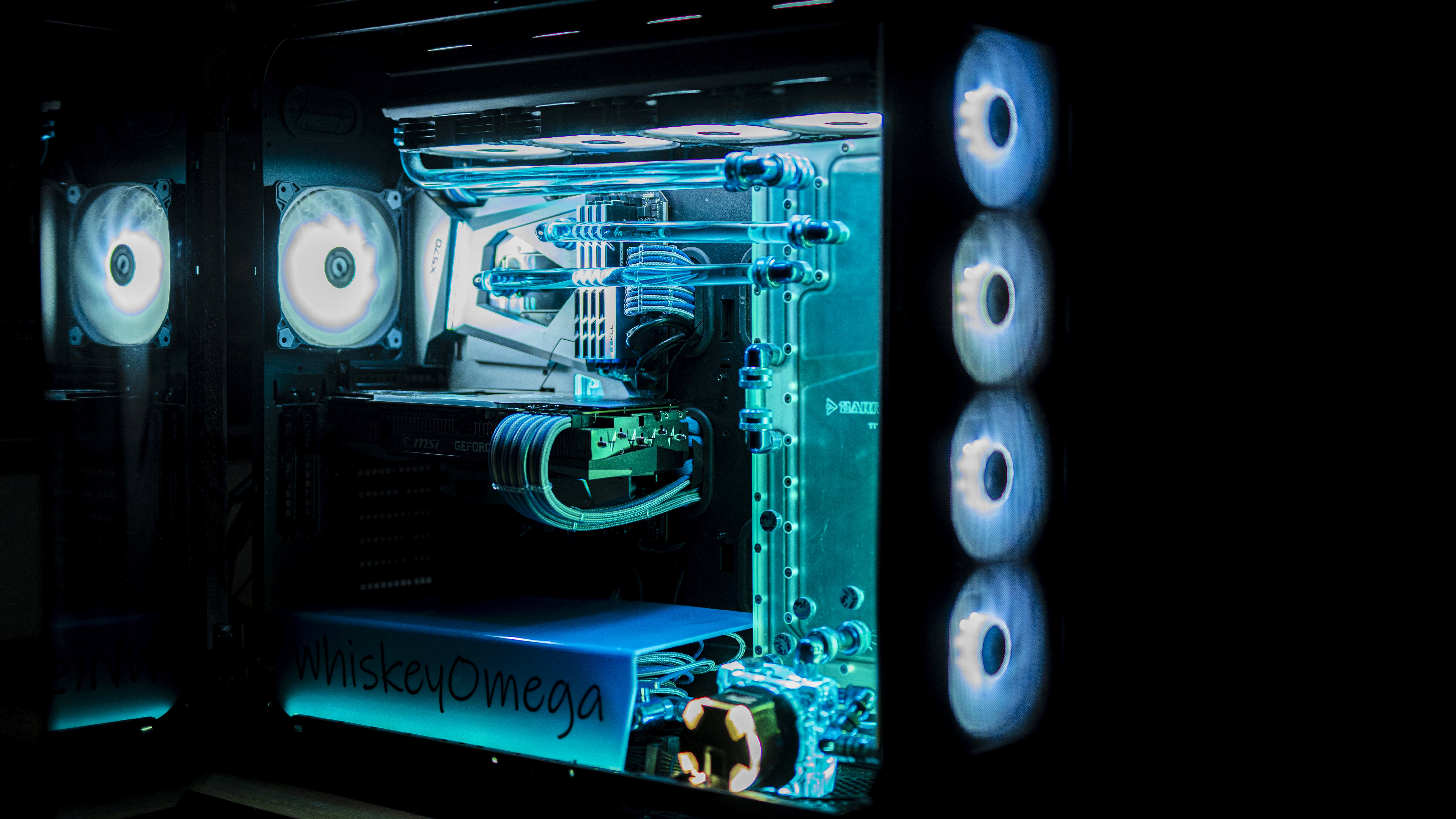

Currently I think my leading theory is that Elon Musk has made a deal with a witch, and in exchange for eternal life he has to burn 44 billion dollars as fast as possible. I see no other explanation for these batshit decisions.


Currently I think my leading theory is that Elon Musk has made a deal with a witch, and in exchange for eternal life he has to burn 44 billion dollars as fast as possible. I see no other explanation for these batshit decisions.


I thought about this before, and mostly agree. My mom knows nothing about computers and could probably use Ubuntu if I stick it on a machine and gave it to her. The thing preventing me from doing it is that when things go wrong in Linux, it often requires extensive terminal usage to fix. And my mother can often find new and creative ways to break a computer. If something went wrong with it, I would have to fix it. There is literally no one else she knows who would even know where to start. At least if she’s on windows, she can find someone to help her.


I’m sceptical that blue light lenses, even those that effectively block blue light, are doing much of anything. Blue light can mess with your circadian rhythm, but so can orange-tinted light if it’s bright enough. A better system would be to limit screen time after dark. If you are using screens, lower their brightness to the lowest amount you can still see. You can use a night -time filter to tint the screen orange after dark (most OS’s and devices support some form of this). Blue light lenses while holding a OLED device six inches from your face at full intensity? Likely not doing much.

Evidently playing the game isn’t a fun experience either, Aaron.
So, uh, not to sound out of the loop here, but what exactly is Sega getting here? They spent close to a billion dollars for…the Angry Birds IP?


“Clicking agree allows us to come into your bedroom at night and sleep with your wife. Don’t worry, we wouldn’t actually do that, even though we did take the time to explicitly add that to our terms of service. You can trust us.”
And it’s prioritizing short-term views over long-term stability. Sure, rushing the review gets you views now, but if companies realize that you’re not going to give their product a fair shake, they’ll stop sending you products. Then to review things, you’ll need to buy them yourself, further cutting into your profits. If Billet Labs ever makes another product, they’re not going to send LTT a review sample because of this whole shitshow. Other startups are now going to be hesitant to send LTT review products because 1. They may not get a fair review, and 2. They may not get their review product back.


This is an important point. We’re all pissed at LTT right now so are eager to jump on any story that supports that narrative. I’m not saying I don’t believe Madison (what she says pretty much lines up with what I would expect). But before we convict Linus in the court of public opinion, we should allow him to argue in his defense.
Like, is the Billet Labs issue supposed to be sabotage or something? He’s shitting on it right from the beginning, uses the wrong card, installs it poorly, then refuses to retest because…it’ll cost him…like…$500?
It’s like if I was reviewing a screwdriver, decided to use nails because I couldn’t find any screws, held the thing upside down, then bitched about how shitty it was. And when it’s pointed out that my review isn’t fair, refuse to retest because a box of screws is $8 at Home Depot and the screwdriver probably sucks anyway. And on top of that, just sell the screwdriver to someone else instead of giving it back.
Does LMG have investments in a competitor or something? It is so willfully irresponsible that I almost want to claim conspiracy because I can’t believe that a company would make so many poor decisions by mistake. What is going on over there where a $500 reshoot that would ensure a fair and balanced review of the product is such an nonnegotiable prospect?

Either:
Gamefreak cannot keep its historically small team size while trying to make large, open world titles that release annually. Tears of the Kingdom tool over 5 years to develop, and that was working with pre-existing assets. Gamefreak’s model is not sustainable.


On Artemis, yes. On kbin.social, no. Was kinda wondering why no one else was talking about it.
Is there a way that this fight can end with them both losing?


True. Just like free speech only matters when a far-right news pundit is banned on social media.


But you know the industry will learn the wrong lesson from this.
“Wow, people really like Baldur’s Gate 3. I know, it must be the dice rolls! Let’s have every interaction in Assassin’s Creed: Tropical Freeze be determined by RNG!”


There really does need to be a limit of how many magazines you’re allowed to moderate. There’s no way you can effectively moderate 59 different communities.


Ever notice how with the far right, the second amendment is the only one that matters? Any attempt to restrict gun access in any way is immediately challenged as unconstitutional, no compromise. But the first amendment never gets that benefit. We’ll ban books and raid newspapers just fine.


Taking a picture instantly after would probably create a different hash value. The thing about hashing is that even if one bit is different between source images, the resulting hashes would look entirely different.
I suppose I could conceive of a proprietary hash algorithm that would allow for fuzzy matching of iris photos, but as you said, eyes taken years apart in different conditions wouldn’t match the original hash. Or falsely match similar looking eyes. It’s not like this system allows them to get high resolution perfectly lit iris photos, after all.
The whole thing sounds dubious, and I suspect AI is mentioned solely to secure investor funding, much like how several years back everything mentioned Blockchain.


Maybe he was visited by 3 ghosts?


There needs to be a distinction between “I did my science badly” and “I knowingly published false information”. Wakefield’s paper linking vaccines and autism faked its data to imply a causal relationship between the two for the purposes of financial gain. You should absolutely be able to sue that guy if his paper damaged you in any way. Fuck 'em.
On the other hand, if you publish a study in earnest, but that study is full of mistakes and comes to an incorrect conclusion, you should not be able to be sued. If the study is bad, it would be easy enough to publish a response pointing out flaws with the original study. This is especially true since so many papers are published with the caveat of “this requires future study to confirm”.
In order to sue, you should be required to show some sort of malicious action behind the bad science, such as faked data.
The problem is that the places where this technology would be useful also happen to be the places with little to no humidity. You can’t pull water out of the air if there isn’t any.
The places where this would be useful are places with high humidity, but then water sources aren’t usually an issue. You’d have to have a region where it’s very humid, but doesn’t have access to drinking water. I don’t imagine those are particularly common. Such a region would probably benefit more from water treatment than pulling it out of the air.